Vietnam has signed and participated in 17 Free Trade Agreements. This is an opportunity but also a challenge for Vietnamese brands in protecting intellectual property rights.
To clarify this issue, a reporter from the Industry and Trade Newspaper had an interview with Mr. Tran Le Hong - Deputy Director of the Department of Intellectual Property (Ministry of Science and Technology).
Sir, Vietnam has signed and participated in 17 FTAs, and is preparing to start negotiations on 3 FTAs and economic frameworks. So, what is the issue of intellectual property rights (IPR) protection for Vietnamese brands today?
The signing of 17 FTAs and preparations to start negotiations on 3 FTAs and economic frameworks demonstrate Vietnam's proactiveness in integrating with the world economy.
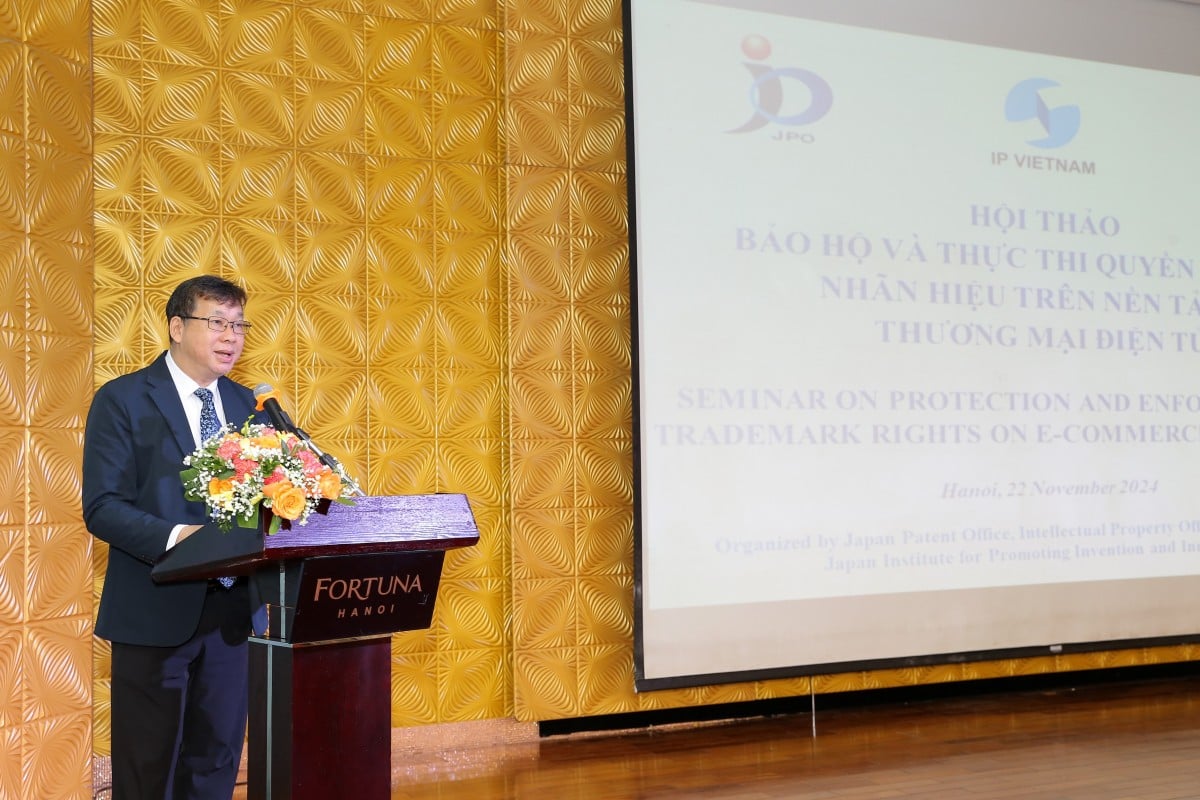 |
| Mr. Tran Le Hong - Deputy Director of the Department of Intellectual Property (Ministry of Science and Technology). Photo: SHTT |
Commitments on intellectual property rights protection in FTAs, especially new-generation FTAs such as the Comprehensive and Progressive Agreement for Trans-Pacific Partnership (CPTPP), the Vietnam - European Union FTA (EVFTA), and the Regional Comprehensive Economic Partnership Agreement (RCEP Agreement) are at a higher level than the corresponding commitments in the agreement on trade-related aspects of intellectual property rights (TRIPS Agreement) when Vietnam joined the World Trade Organization in 2005 and became an official member of the WTO in January 2027. This creates many new opportunities for Vietnamese businesses, but also poses many challenges.
In terms of opportunities, intellectual property protection in FTAs helps Vietnamese enterprises gain high protection for investment results in creative activities related to technological innovation, design, packaging, especially trademarks, helping to develop effective brands in foreign markets that are member countries of FTAs.
According to the commitments in the FTAs, the procedures for establishing industrial property rights are becoming more transparent, fair and reasonable, especially enterprises can submit their applications for registration of intellectual property rights completely online. At the same time, they can exercise their right to oppose or comment on applications for registration of industrial property rights submitted in FTA member countries simply and easily to ensure their intellectual property rights in foreign markets.
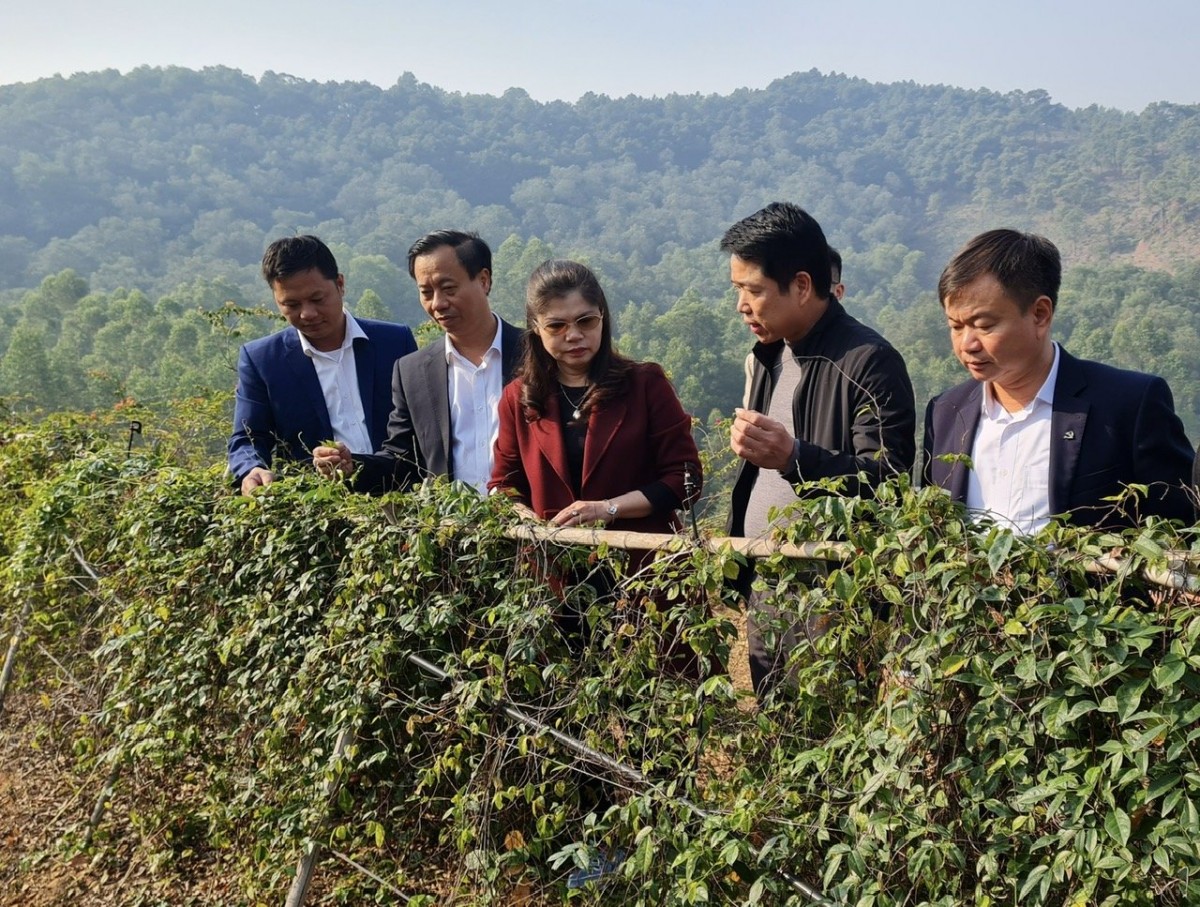 |
| The delegation of the Department of Science and Technology of Bac Giang province and Tan Yen district inspected the growing area of Danh mountain ginseng after being granted a certificate of geographical indication. The product has been gradually exported to the US market. Photo: TH |
Along with that, the mechanism for handling intellectual property infringement is also stricter and more effective... Furthermore, a high intellectual property protection mechanism will create a good environment, capable of attracting foreign technology transfer to improve the quality of products originating from Vietnam, creating conditions to gradually improve domestic technological capacity and create a healthy and equal competitive environment for Vietnamese enterprises.
However, the high protection of intellectual property rights also poses challenges for Vietnamese enterprises because product prices may be higher due to costs related to the protection and exploitation of intellectual property rights as well as the fact that many production and business activities of Vietnamese enterprises still depend on foreign protected technology, especially high technology. However, in return, enterprises will have better, more stable and sustainable goods/services, helping to enhance the competitiveness of enterprises, especially in foreign markets.
In your opinion, what role does intellectual property protection play in building Vietnamese brands in the international market?
To develop products and expand into foreign markets, businesses not only need good quality but also need to build a brand for the product. This requires the brand to be built on a trademark that meets the regulations on protection, exploitation, and enforcement of foreign intellectual property rights. Registering a trademark to develop a brand is a prerequisite legal guarantee for the brand, on that basis, competing effectively, prestigiously and sustainably with other brands in foreign markets.
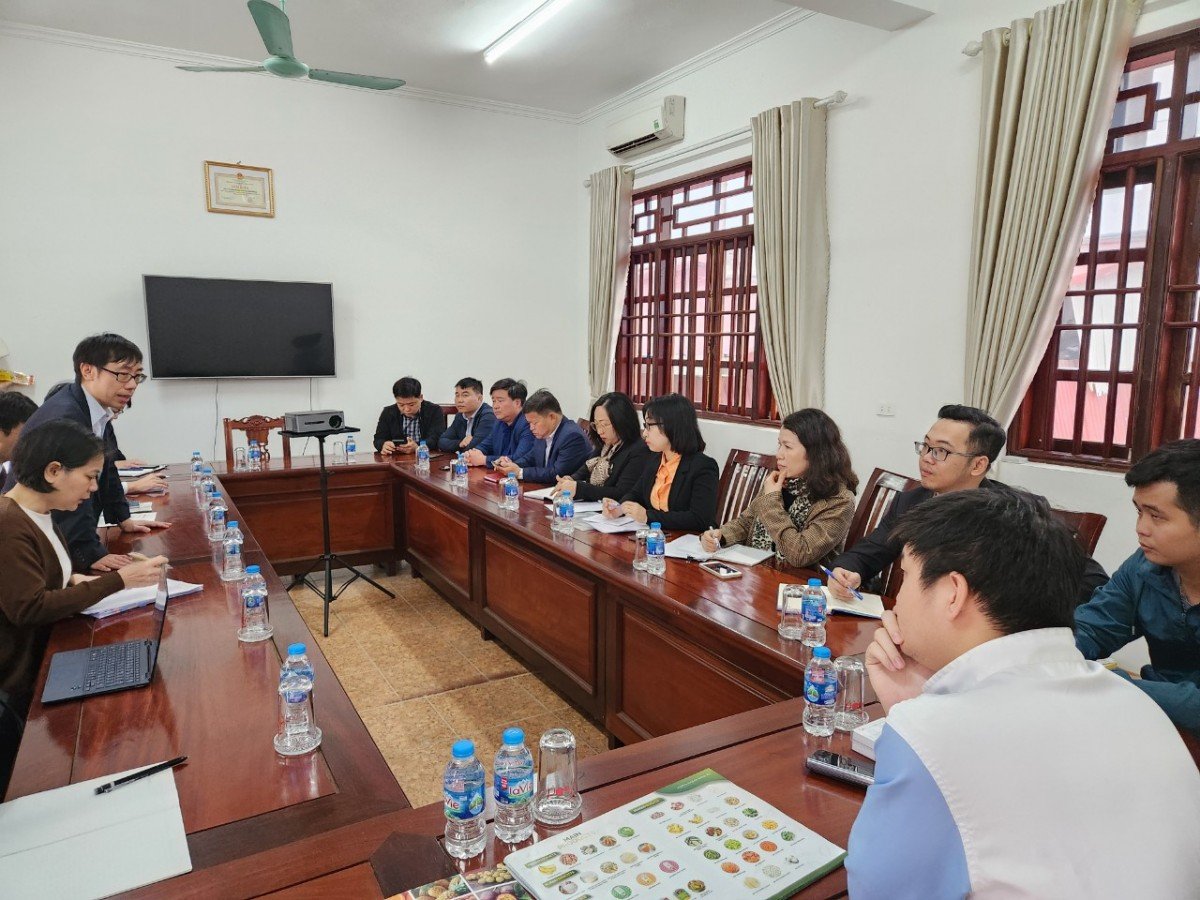 |
| A working delegation from the Japanese Ministry of Agriculture, Forestry and Fisheries and the National Office of Intellectual Property (Ministry of Science and Technology of Vietnam) worked with a lychee processing and export enterprise in Luc Ngan in March 2024. Photo: Thu Huong |
As we know, intellectual property rights for trademarks are protected by territory, specifically only in countries where the trademark has been registered and accepted for protection. Therefore, one of the things that businesses should consider doing as soon as they plan to expand their market abroad and export goods is to register intellectual property rights for trademarks for products in their target export markets. Failure to promptly protect intellectual property rights for trademarks abroad can lead to serious consequences for Vietnamese businesses, typically when another business has registered the trademark of a Vietnamese business and the Vietnamese business loses the ability to export goods under its brand to foreign markets where the other business has registered.
Paying attention to early registration of intellectual property rights for their trademarks in exporting countries will bring direct benefits to businesses, when they enjoy exclusivity over their trademarks, which not only allows them to use but also allows others to use, or prohibits others from using their trademarks. Another important thing is that when the trademark (brand) has been protected in the export market, businesses have the right to fight against acts of infringement, unfair competition or appropriation by other businesses related to their trademark (brand). Thereby, Vietnamese businesses can protect their reputation in foreign markets.
In addition, protecting intellectual property rights for brands (trademarks) also helps Vietnamese enterprises avoid risks that may be caused by unintentional infringement of intellectual property rights for brands of individuals and other enterprises in foreign markets. At the same time, it avoids wasting a lot of effort, time and money to pursue legal cases, especially lawsuits in foreign courts, causing damage to money, opportunities and reputation in foreign markets. Many Vietnamese brands have had the right and timely strategies in protecting their intellectual property rights abroad, for example Viettel, Traphaco, Trung Nguyen, Trung Thanh, Vinamilk, Sao Thai Duong, etc.
Thus, one of the important issues that businesses need to pay attention to when developing Vietnamese brands in the international market is to focus on raising awareness of intellectual property rights, promptly establishing intellectual property rights and effectively exploiting their exclusive rights to protect and develop brands for their products in foreign markets.
So what should Vietnamese businesses pay attention to in order to develop and stand firm in the market after protecting intellectual property rights, sir?
Always monitor the market to promptly detect other brands using identical or similar trademarks, causing confusion with your trademark, and take necessary measures to prevent them to ensure the distinctiveness of your trademark. It is necessary to regularly and vigorously protect your intellectual property rights for your trademark (brand) to fight against counterfeit and fake goods of your trademark.
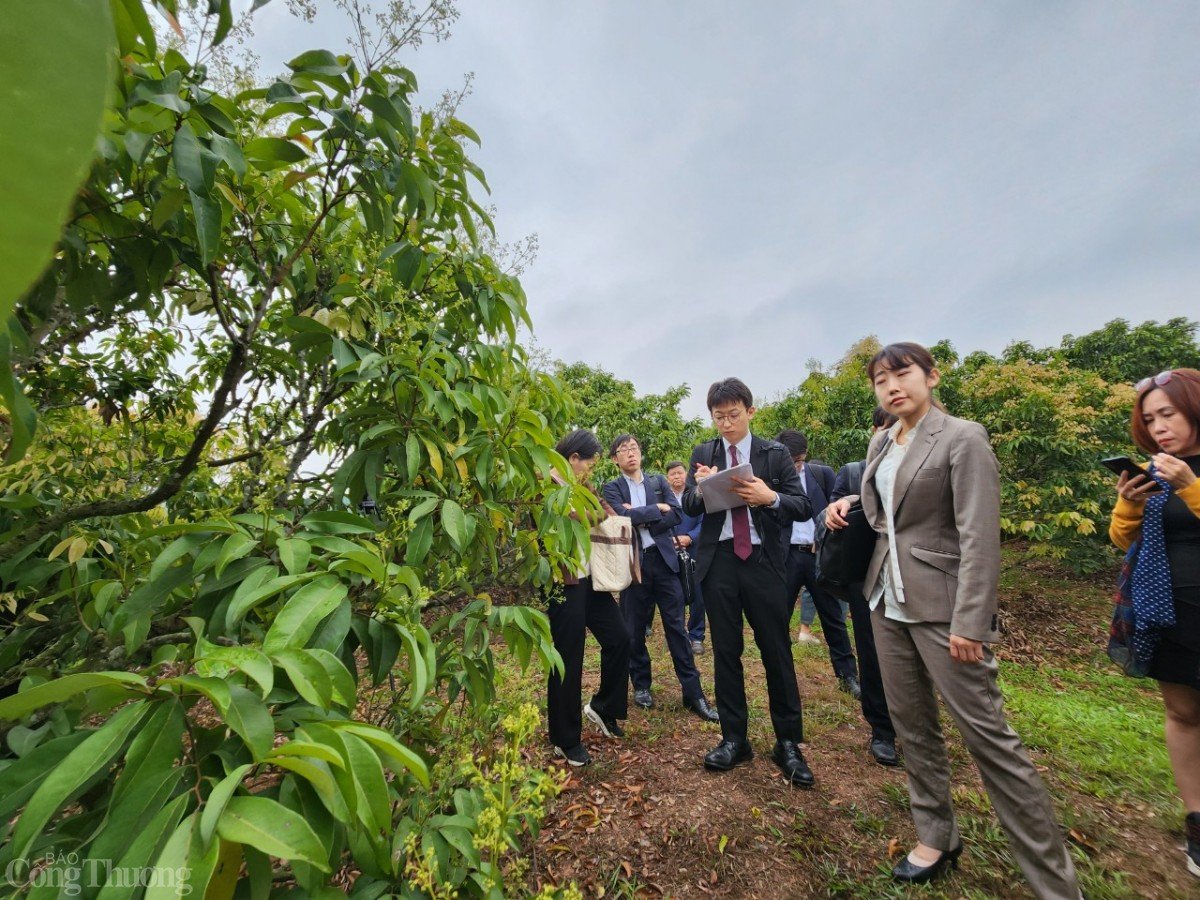 |
| A working group from the Japanese Ministry of Agriculture, Forestry and Fisheries and the Intellectual Property Office assessed the Luc Ngan lychee growing area in March 2024. Photo: Thu Huong |
In addition, it is necessary to ensure the quality of products and services provided to the market in order to maintain the reputation of branded goods and services. At the same time, it is necessary to pay attention to diversifying products and services, especially personalizing goods and services to best suit different markets (for example, goods that meet Halal standards for export to Muslim countries...), contributing to brand development.
Enterprises also need to regularly research and apply technology to develop new products, improve existing products to increase competitiveness, and combine with the enterprise's brand to enhance brand development.
Businesses also need to regularly pay attention to overseas consumers, update information and raise their awareness of their goods and services, as well as communicate well about their brands.
Enterprises also need to proactively incorporate intellectual property content (creating, registering, using and protecting intellectual property rights) into production and business activities at home and abroad, first of all updating their business strategies.
Another important point is that enterprises regularly improve their intellectual property capacity through training, coaching and consulting activities from specialized agencies to effectively implement intellectual property activities in production and business. In addition, it is necessary to strengthen cooperation and connection with relevant agencies and organizations such as specialized state management agencies, associations, consulting units, etc.
Thank you!
Source: https://congthuong.vn/thuong-hieu-viet-va-bao-ho-quyen-so-huu-tri-tue-khi-tham-gia-cac-fta-363834.html



![[Photo] General Secretary To Lam receives King Philippe of Belgium](https://vstatic.vietnam.vn/vietnam/resource/IMAGE/2025/4/1/e5963137a0c9428dabb93bdb34b86d7c)
![[Photo] Close-up of Vietnam's sniffer dog team searching for earthquake victims in Myanmar](https://vstatic.vietnam.vn/vietnam/resource/IMAGE/2025/4/1/d4949a0510ba40af93a15359b5450df2)
![[Photo] Prime Minister Pham Minh Chinh meets with King Philippe of Belgium](https://vstatic.vietnam.vn/vietnam/resource/IMAGE/2025/4/1/be2f9ad3b17843b9b8f8dee6f2d227e7)

![[Photo] President Luong Cuong and King Philippe of Belgium visit Thang Long Imperial Citadel](https://vstatic.vietnam.vn/vietnam/resource/IMAGE/2025/4/1/cb080a6652f84a1291edc3d2ee50f631)

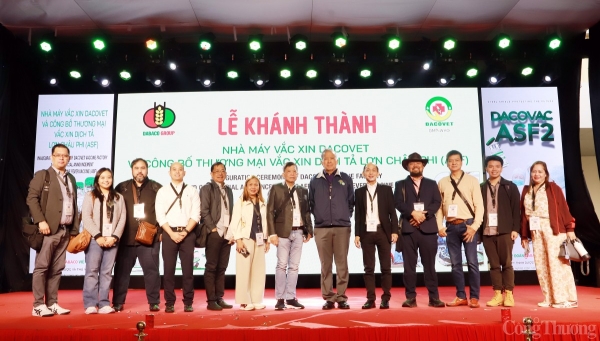
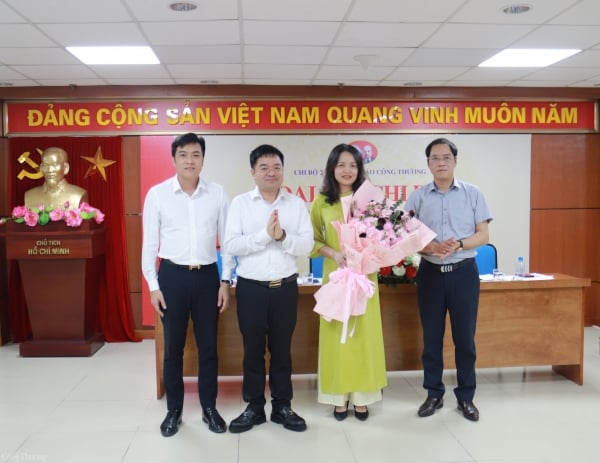
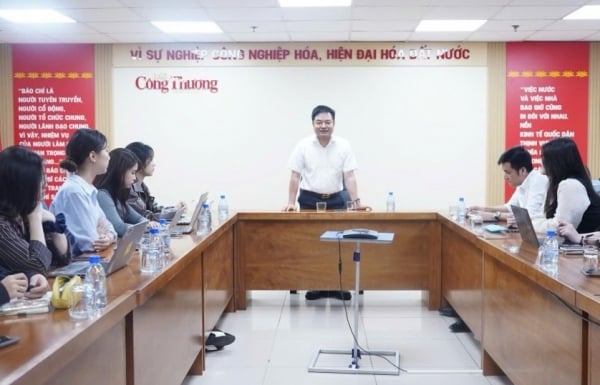

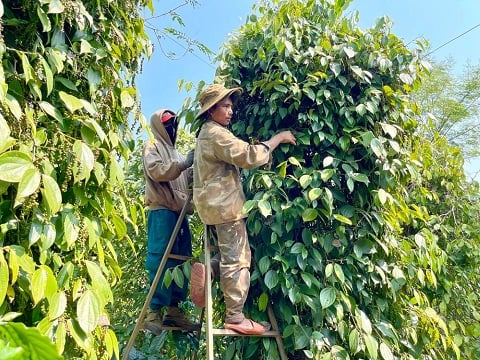




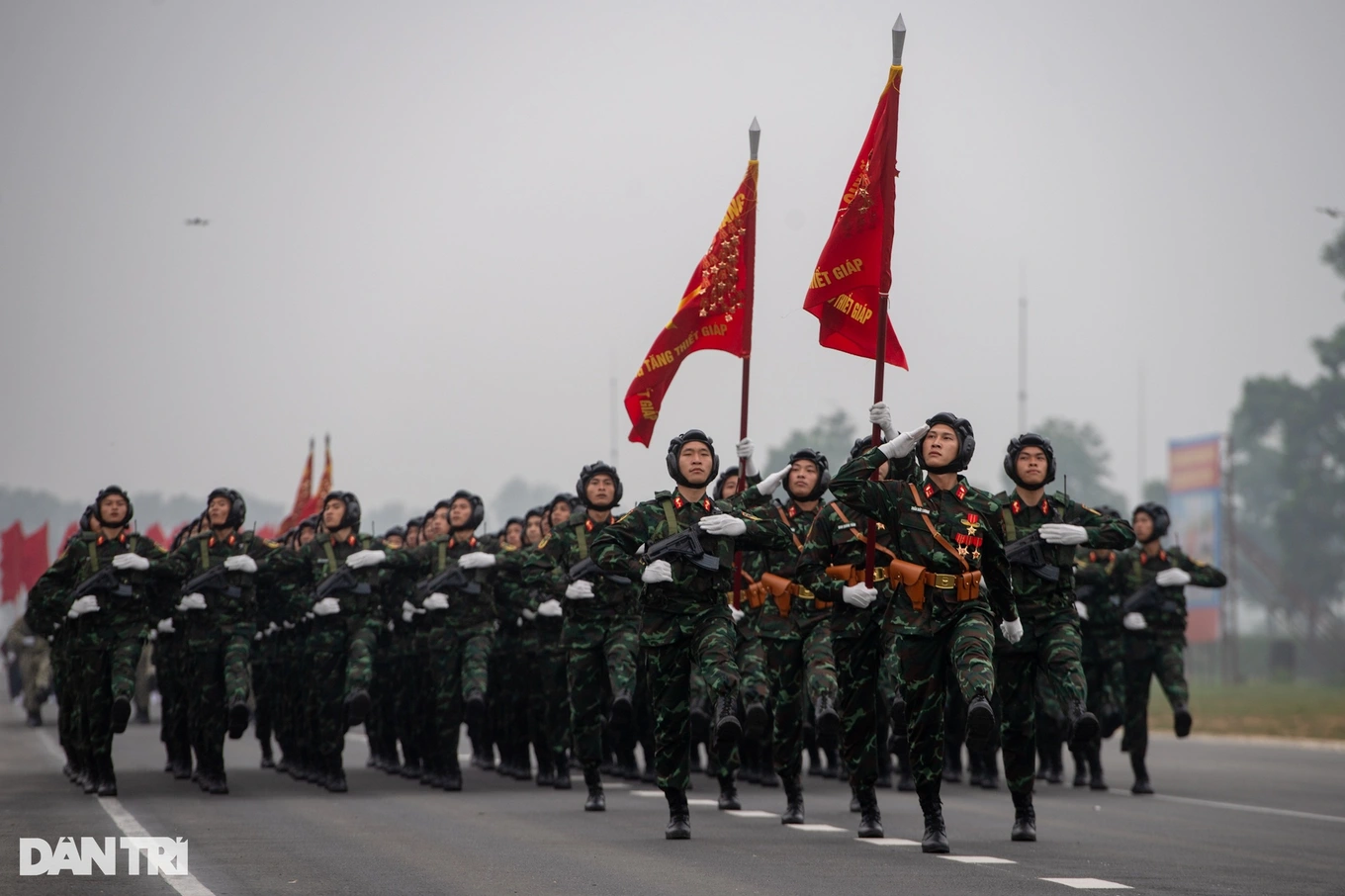
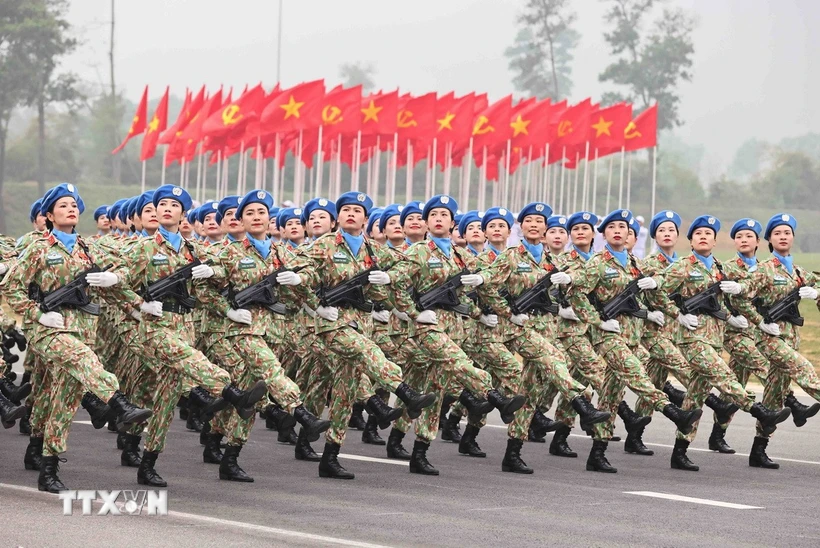





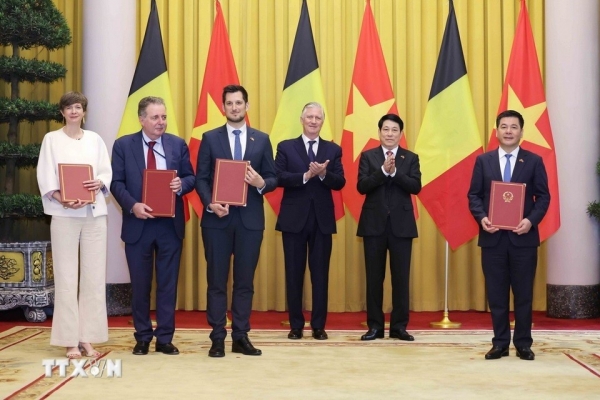


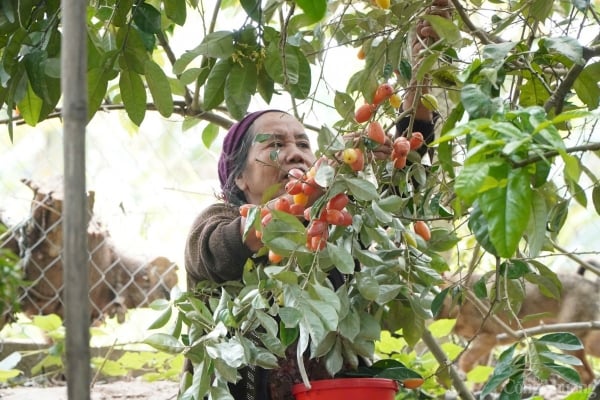

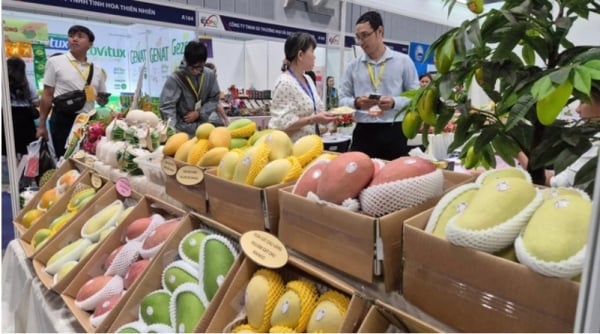
![[Photo] Myanmar's capital in disarray after the great earthquake](https://vstatic.vietnam.vn/vietnam/resource/IMAGE/2025/4/1/7719e43b61ba40f3ac17f5c3c1f03720)












































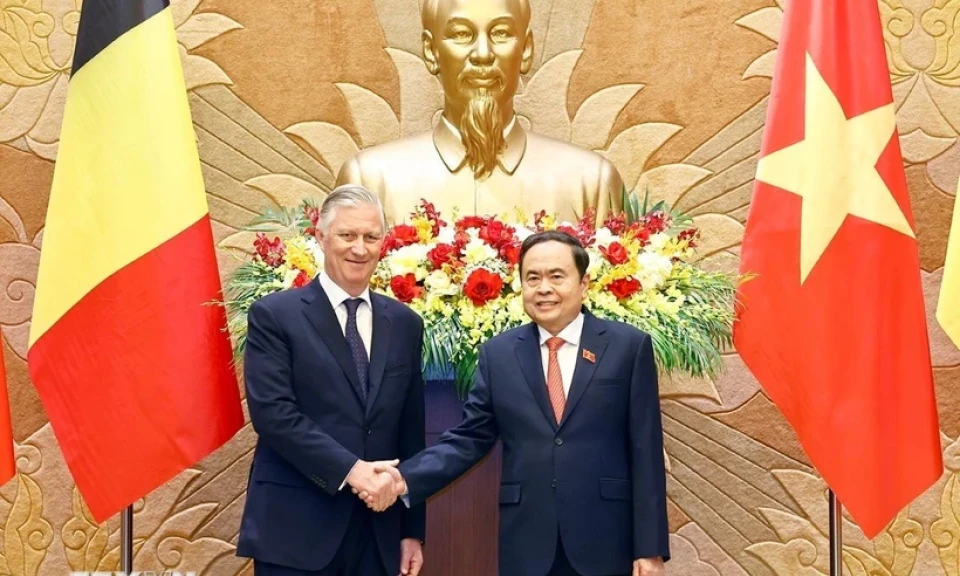

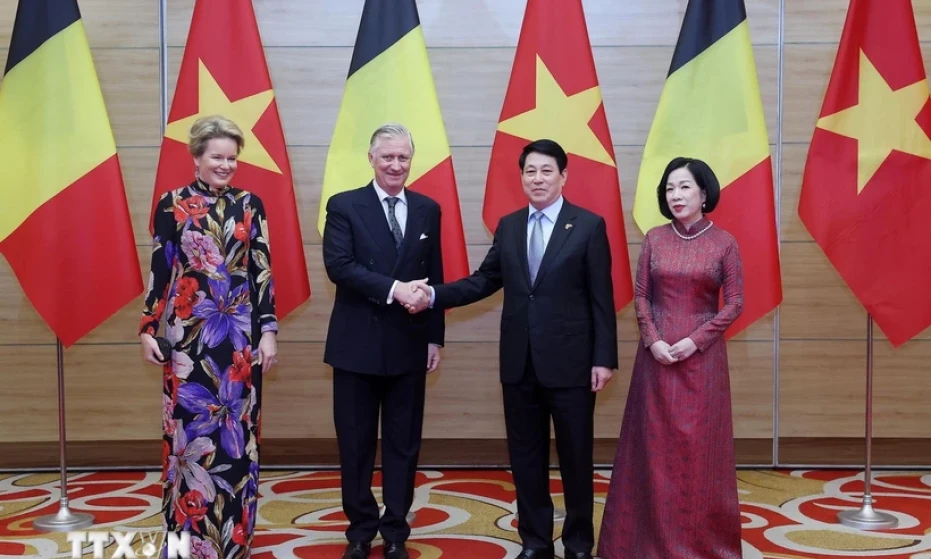



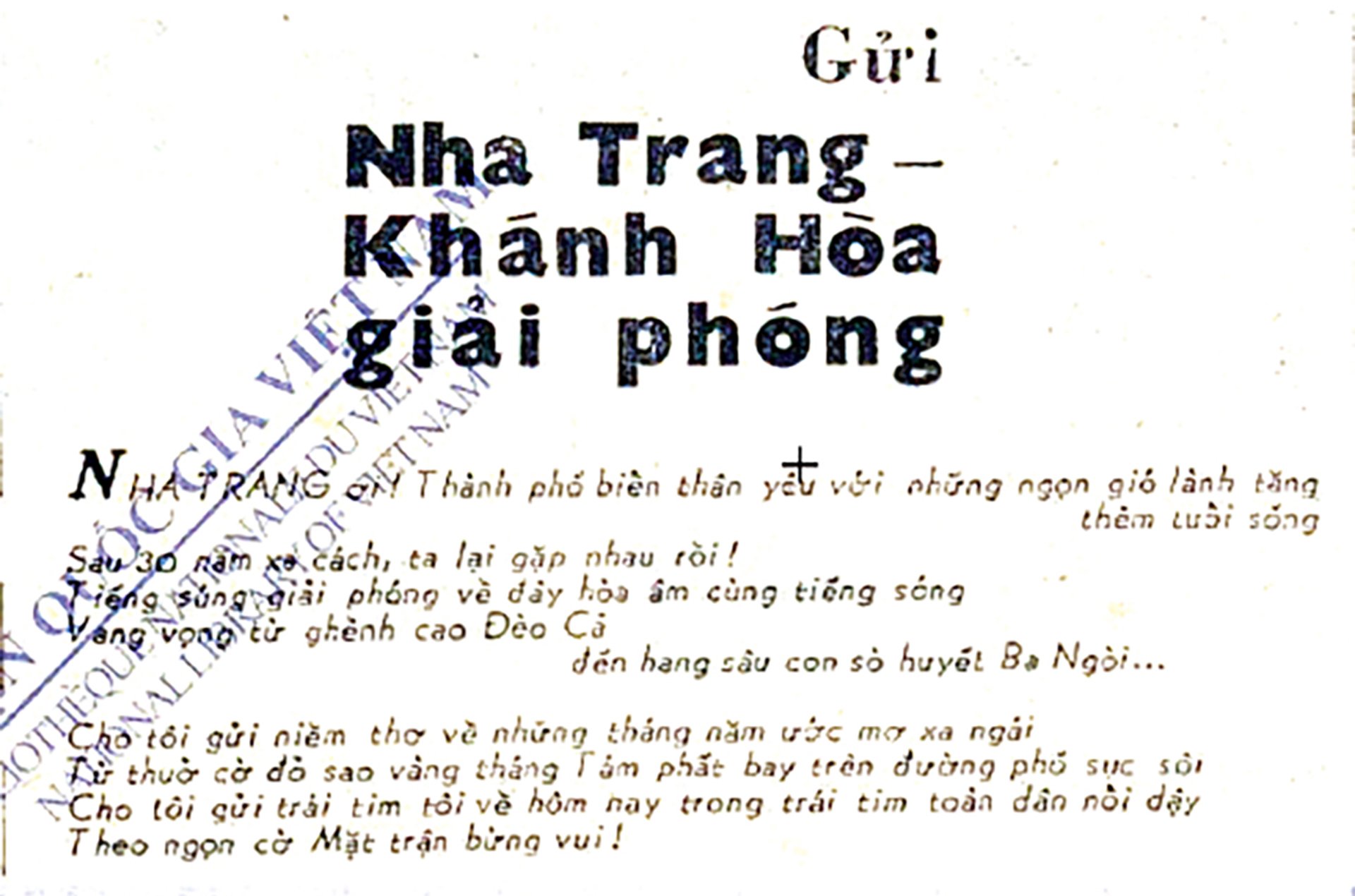












Comment (0)